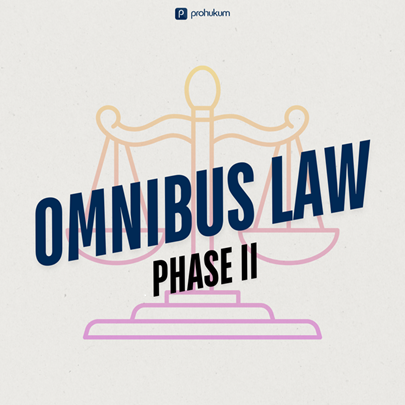Since the enactment of Law Number 11 of 2020 on Job Creation (Omnibus Law), controversy has continued especially from workers and labor unions. Now, in 2025, the government is pushing ahead with Phase II of the Omnibus Law as part of its structural reform and investment strategy. However, amid hopes for economic growth, concerns are rising again: Will labor protections be further eroded? As a result, these developments have renewed the debate on how labor protection should balance economic goals with workers’ rights.

What Is Omnibus Law Phase II?
The government continues Omnibus Law Phase II as part of its cross-sector legislative approach to streamline regulations that hinder investment and job creation.
- The taxation and fiscal sector,
- Harmonization of regional licensing,
- Bureaucratic digitalization,
- Further revisions to labor regulations.
Even though the focus is broader, labor issues still remain a major point of contention. This is because the impact of the initial Job Creation Law continues to spark legal challenges and resistance.
Spotlight on Labor Protection
- More Flexible Minimum Wage
In the original version of the Job Creation Law, the formula for calculating the minimum wage removed the element of a decent standard of living. Many fear this policy will be reinforced in Phase II.“Wage flexibility for investors could mean stagnation or even a decline in workers’ purchasing power.” - Open-Ended Contract Work
The previous Omnibus Law allowed fixed-term employment agreements (PKWT) without any maximum contract duration, raising concerns about career insecurity for workers. Without revisions, this could further worsen working conditions. - Reduced Severance Pay
The revised severance pay scheme became a major issue, as the amounts were significantly lower than those mandated by the previous Labor Law. So far, Omnibus Law Phase II shows no signs of restoring these rights. - Expanded Outsourcing
The government expanded outsourcing to cover all types of jobs, which many see as a threat to permanent worker positions and a cause of increased employment insecurity.
Public and Labor Union Response
Labor unions such as KSPI and SBSI have strongly voiced their opposition to the expansion of the Omnibus Law, because they view it as increasingly detrimental to workers. As a result, protests and judicial reviews filed with the Constitutional Court have become key legal strategies.
“Omnibus Law Phase II should serve as a correction, not an intensification of the imbalance between workers and employers.”— President of the Confederation of Indonesian Trade Unions (KSPI).
Legal Perspective
From a legal standpoint, the existence of an Omnibus Law is not inherently contrary to the rule of law. However, the principles of justice and legal certainty must be upheld. Key considerations for lawmakers include:
- Principle of non-derogable rights: We must protect basic worker rights—such as fair wages, social security, leave, and freedom of association—without compromise.
- Public participation: The legislative process must be inclusive and open to participation from labor unions, academics, and NGOs.
- Impact evaluation: Objective data and studies on the effects of Phase I of the Omnibus Law on worker welfare are essential before creating further regulations.
Recommendations for the Government and Parliament
- Involve Workers and Labor Law Experts in the Legislative Process
Meaningful participation is essential for the legitimacy of any legal product.
- Revise Previous Provisions That Harm Workers
Phase II should not be used as an entry point to further weaken workers’ rights.
- Provide Fair Transition Mechanisms
There must be clarity regarding the rights of existing workers to prevent adverse impacts from legal changes.
- Strengthen the Role of Labor Supervisory Institutions
Laws without effective oversight risk becoming meaningless text.
Conclusion
Omnibus Law Phase II marks a new chapter in the government’s broad ambition to reform national legislation, including labor law. Today, global competition is fierce. Therefore, regulatory simplification is necessary to create a more investment-friendly environment. However, deregulation must not sacrifice social justice or fundamental worker rights.
Indonesia’s labor law has evolved through a long struggle to balance productivity with protection. When policies focus too much on market efficiency, workers risk being reduced from drivers of development to mere tools of growth.
Workers are not obstacles to development—they are its driving force. Thus, any regulation that affects their livelihoods must rest on protection, empowerment, and human dignity. Without workplace justice, even the largest investments won’t be sustainable.
By balancing economic and social goals—and staying true to fair legal principles—Omnibus Law Phase II could become a long-term solution. Ultimately, it must aim to unify, not repeat the cycle of patchwork policies and future conflicts.
